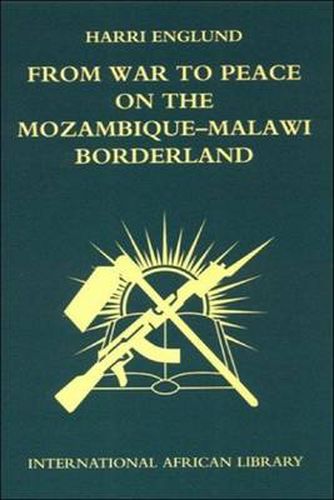Readings Newsletter
Become a Readings Member to make your shopping experience even easier.
Sign in or sign up for free!
You’re not far away from qualifying for FREE standard shipping within Australia
You’ve qualified for FREE standard shipping within Australia
The cart is loading…






Extended case studies of particular villages and families on the Mozambique-Malawi borderland form the core of this study of villagers from war to peace in Mozambique. While tracing their paths to war, exile and post-war reconstruction, the book reveals the human face of national and transnational crises. This study takes the reader beyond the stereotypes which often accompany interventions into humanitarian catastrophes. The villagers in this book are not nameless victims but persons with social relationships, participants, in their own ways, in the histories of colonialism, nationalism, labour migration, guerrilla war, exile, repatriation and, most recently, liberal democracy. A major contribution of the book is to show how changing historial circumstnces have variously pitted villagers against one another and fostered co-operation. Questions of trust, moral value and legitimate authority inform ethnographic description, leading to a critique of contemporary analytical approaches to social capital.
$9.00 standard shipping within Australia
FREE standard shipping within Australia for orders over $100.00
Express & International shipping calculated at checkout
Extended case studies of particular villages and families on the Mozambique-Malawi borderland form the core of this study of villagers from war to peace in Mozambique. While tracing their paths to war, exile and post-war reconstruction, the book reveals the human face of national and transnational crises. This study takes the reader beyond the stereotypes which often accompany interventions into humanitarian catastrophes. The villagers in this book are not nameless victims but persons with social relationships, participants, in their own ways, in the histories of colonialism, nationalism, labour migration, guerrilla war, exile, repatriation and, most recently, liberal democracy. A major contribution of the book is to show how changing historial circumstnces have variously pitted villagers against one another and fostered co-operation. Questions of trust, moral value and legitimate authority inform ethnographic description, leading to a critique of contemporary analytical approaches to social capital.